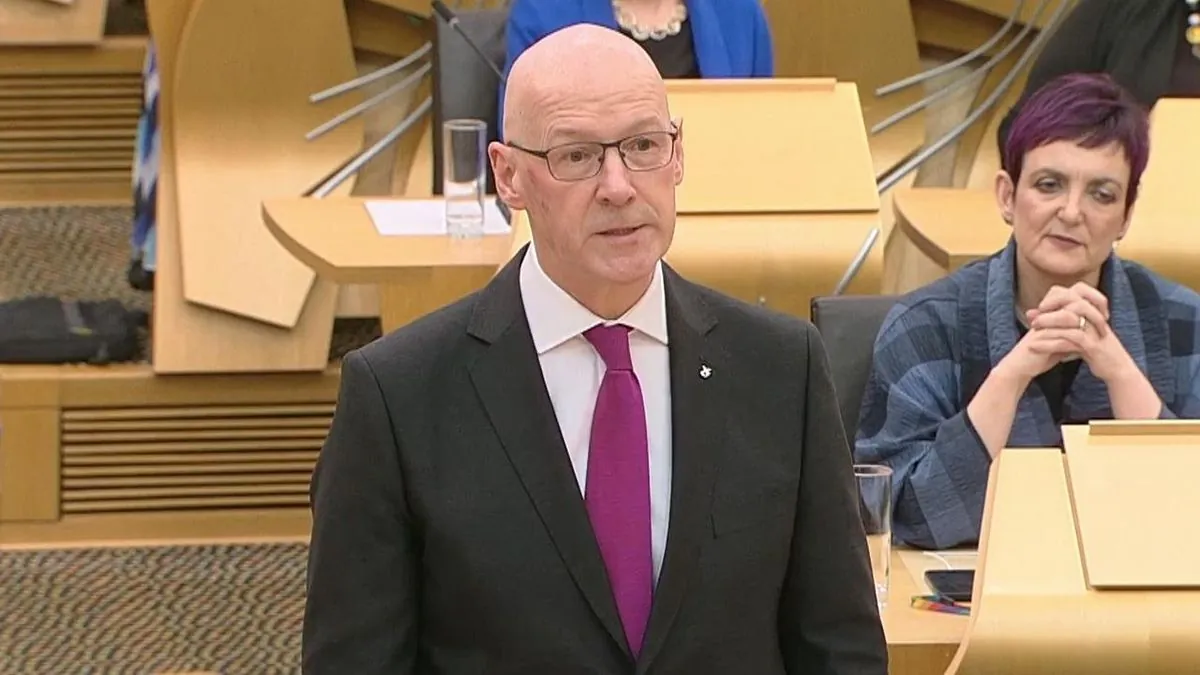SNP Shifts Independence Strategy on Referendum Anniversary
John Swinney claims Labour has undermined its anti-independence stance, as SNP adopts new approach to engage all Scots. Opposition urges focus on pressing issues like healthcare and economy.

On the tenth anniversary of Scotland's 2014 independence referendum, John Swinney, First Minister of Scotland, has asserted that Sir Keir Starmer's Labour administration has "completely demolished" the argument against Scottish independence. This statement marks a significant shift in the Scottish National Party's (SNP) approach to the independence debate.
Swinney contends that it took merely ten weeks for Labour to undermine its own stance that Scotland only needed a change in UK government, not independence. He cited the UK government's decision to means-test winter fuel payments in England as evidence, despite similar policies in Scotland.
The First Minister argued that Starmer's tenure demonstrates that Westminster governance, regardless of the party in power, is problematic for Scotland. This perspective aligns with the SNP's long-standing position, established since its founding in 1934, that Scotland's interests are best served through independence.
However, Swinney acknowledged that support for independence needs to increase from its current levels. Polls indicate that backing for separation has not surpassed the 45% recorded in the 2014 referendum, where 55.3% of Scots voted to remain in the UK.
In a strategic shift, the SNP is now advocating for dialogue with "everyone in Scotland," including unionists, to build support for independence. This approach represents a departure from previous attempts to force a second referendum through legal and parliamentary means, which proved unsuccessful.

The SNP's new strategy aims to make independence relevant to everyday concerns of Scottish citizens, focusing on issues such as healthcare, education, and the cost of living. This approach recognizes the diverse needs of Scotland's 5.5 million inhabitants and the complex economic landscape of the country, which boasts the third-largest economy in the UK.
Opposition parties, however, urge the SNP to prioritize pressing issues facing Scotland. Douglas Ross, the Scottish Conservative leader, emphasized that the referendum result has not been fully respected, leading to ongoing division. Dame Jackie Baillie, deputy leader of Scottish Labour, noted that while Scotland's constitutional future remains a matter for its people, there is little appetite for another referendum soon.
The debate over Scottish independence continues to evolve, influenced by factors such as Brexit, where Scotland voted 62% to remain in the EU, and the distinct nature of Scottish institutions, including its separate legal and education systems. As the SNP adapts its strategy, the coming years will likely see continued discussion on how best to address Scotland's unique challenges within or outside the United Kingdom.
"Today, in 2024, we must reawaken that sense of hope, of optimism and of possibility that was so prevalent 10 years ago. It's time for us to talk to each other again. And when I say each other – I mean everyone in Scotland."
As Scotland navigates its political future, the balance between addressing immediate domestic concerns and the long-standing question of independence remains a central challenge for its leaders and citizens alike.


































